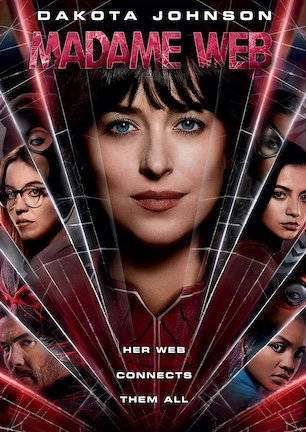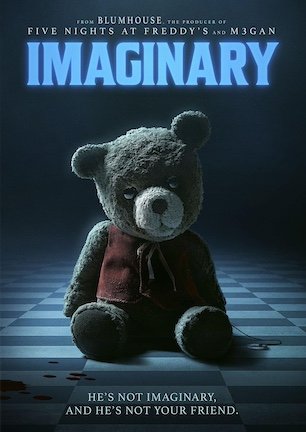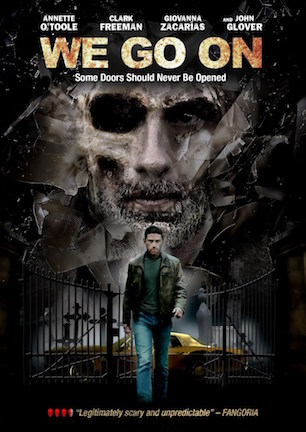Studio: MGM+/Blumhouse
Director: Yoko Okumura
Writer: Salvatore Cardoni, Brian Rawlins
Producer: Paige Pemberton, Paul B. Uddo
Stars: Midori Francis, Jolene Purdy, Michael Patrick Lane, Missi Pyle
Review Score:
Summary:
Through a cellphone camera, a depressed cashier unwittingly becomes the only hope for a visually impaired woman attempting to escape her murderous ex-boyfriend.
Review:
Standard subgenre classifications like “found footage,” “haunted house,” “vampire,” “slasher,” etc. can’t always cut it. Horror needs modernized monikers that tell you what you really need to know by simply identifying the source and the style. We need categories like “slow-burn psychological drama on Shudder” or “DTV disaster from Uncork’d Entertainment.”
Blumhouse could use its own separate subset of descriptors. Their fright film factory has become such a beast that “Blumhouse” by itself can mean just about anything. You need to get specific by clarifying “Blumhouse theatrical thriller” or “Blumhouse supernatural suspense for a preteen’s sleepover.”
“Unseen” falls under the Blumhouse banner of “engineered exclusively for filling up space on a streaming service.” These are their digital movies that come and go without making any noise whatsoever every couple of months or so. They’re the leanest of the lean, even among Blumhouse’s lowest tier of titles: the quick and dirty cheapies that live a short shelf life in a cobwebbed corner of the company while people in power keep their attention turned toward higher profile productions.
In keeping with the formula for what’s basically Blumhouse’s version of a made-for-TV movie, “Unseen” is as uncomplicated as they come. Clocking in at only 75 minutes including credits, the film features just four main actors, one primary indoor location, some outdoor staging that takes place in a tight piece of forest, and a simple setup to fuel its throwaway thrills.
Emily, a young doctor in Michigan, is experiencing a harrowing hostage situation. Her psychotic ex-boyfriend Charlie holds her captive, intent on forcing Emily to fulfill his fantasy of the two of them living unhappily ever after, and ready to kill her if she doesn’t.
Emily eventually escapes from, where else, Charlie’s remote cabin in the woods. You’d think things would start looking up, except they’re having trouble looking anywhere at all. Cursed with a condition that usually only afflicts cartoon creations like Mr. Magoo and Velma Dinkley, Emily literally can’t see the forest for the trees without her glasses, which she broke while breaking away from Charlie. If she’s going to continue fleeing on foot, Emily will need someone else to act as her eyes.
After 911 says no to a video call, Emily dials the first blurry number her thumb hits on her cellphone’s Recent Calls list. Earlier that afternoon, Sam, a depressed gas station cashier in Florida, briefly called Emily for a reason that isn’t revealed until the end. Essentially a stranger, Sam is now Emily’s only hope for getting guided through the woods with Charlie hot on her heels, although Sam is going to have to overcome her own fears of failure first.
Since it operates on a razor-thin premise, and a razor-thin budget to match, “Unseen” puts pep in its step by any means necessary, and most of those means are extraordinarily artificial. Midori Francis and Jolene Purdy are fine as the top two women, though their chemistry gets chopped by having a relationship that only exists over the phone. To keep one of them in the frying pan and the other in a fire at all times, the script concocts some odd drama on Sam’s end that involves a person who can’t decide if she wants to fully commit to a comic relief role or not. “Unseen” has a haphazard handle on tone anyway, so this weird woman repeatedly getting up in Sam’s grill becomes merely one more “wha, huh?” in a wonky little world full of reasons to raise an eyebrow.
“Unseen” is a small movie that tries too hard and yet, also not hard enough. Split-screen tricks add some visual snappiness, but the lack of a consistent rhythm confuses viewers as to the film’s intended entertainment targets. Is Hitchockian suspense, quirky black comedy, or domestic drama the film’s focus? Given its low, albeit serviceable, ambitions, it’s simpler to summarize “Unseen’s” indistinct personality as a Blumhouse digital feature “engineered exclusively for filling up space on a streaming service.” I’ve decided to give it a “neither here nor there” 50/100 because review scores need numbers, not shrugging shoulders emojis.
Review Score: 50







If you want to see impossible amounts of blood explode crimson colors like the world’s worst version of a gender reveal, well, “Abigail” at least has that.